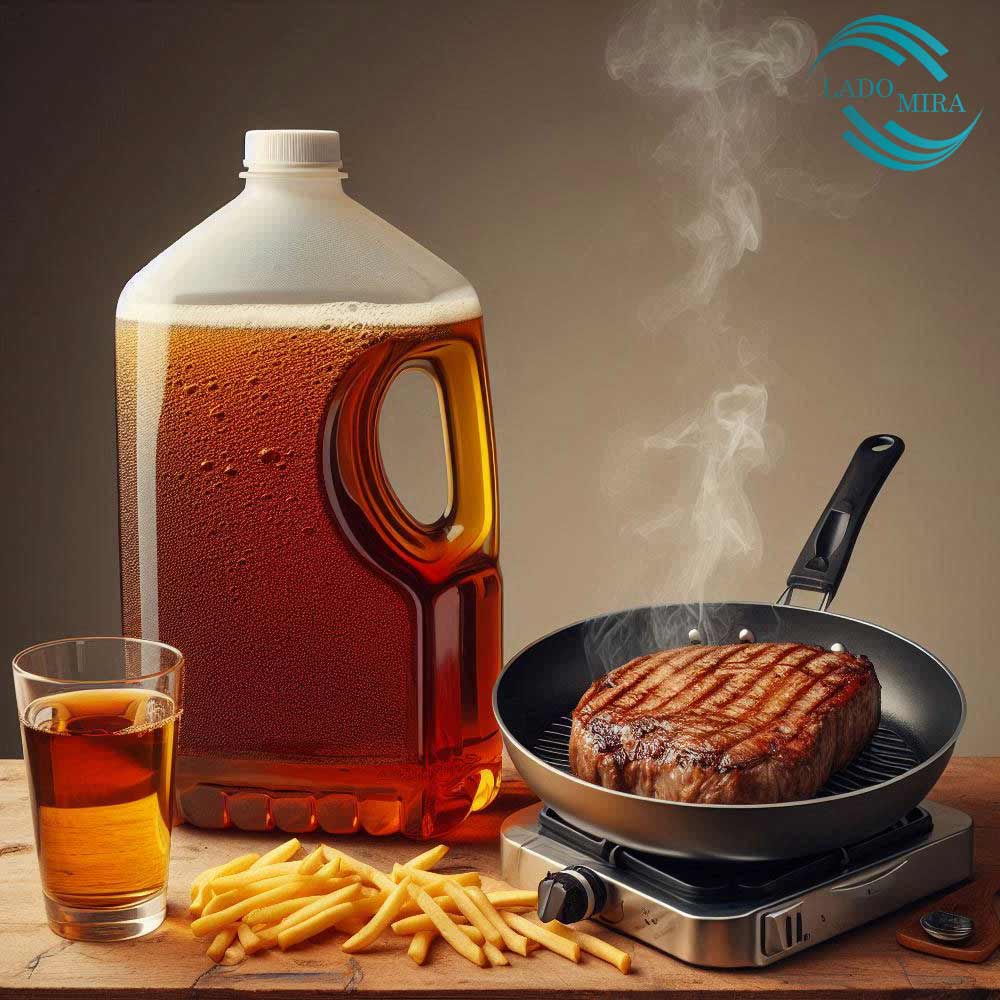Cooking oil burns or Burnt edible oil is one of the byproducts of cooking and industrial processes, which has a variety of uses in different industries due to its physical and chemical properties. After the initial consumption, this oil changes chemically with increasing temperature, and finally it is known as a substance that is no longer suitable for food consumption. But after consumption, this oil can be turned into different resources for reuse in different industries. In this article, we will examine the uses and uses of burnt edible oil in different industries.
What is cooking oil burns?
Edible oil undergoes changes during thermal processes such as frying or cooking. These changes include oxidation, polymerization, and the production of non-degradable compounds that lead to changes in color, taste, and oil quality. Over time, these oils reach a point where they can no longer be used for edible purposes and are known as “burnt edible oil”.
Recycling of cooking oil burns:
Cooking oil burns must be properly collected and recycled due to the negative environmental effects and pollution caused by improper disposal. The process of recycling burnt oil includes filtration, purification and in some cases hydrogenation, which turns this oil into materials with industrial applications.
Applications of cooking oil burns in industries:
- Biodiesel production:
One of the main uses of cooking oil burns is the production of biodiesel. Biodiesel is a renewable and clean fuel that can be used as an alternative to conventional diesels. The process of producing biodiesel from burnt oil involves the reaction of this oil with alcohol (usually methanol) and an alkaline catalyst. This process leads to the production of glycerin as a side product, which has various applications in industries. Using burnt edible oil to produce biodiesel not only helps to reduce environmental pollution, but also reduces the consumption of oil resources.
- Production of soap and detergents:
Cooking oil burns is used as one of the raw materials in the production of industrial soaps and detergents. After processing and purification, these oils can be turned into lower quality soaps that are used in various industries to wash surfaces and equipment. The use of burnt oil in this industry, in addition to reducing production costs, helps in the optimal use of resources.
- Production of industrial lubricants and greases:
After the necessary processing, cooking oil burns can be used as a raw material in the production of industrial lubricants and greases. These products are used in mechanical equipment and industrial machinery and help to reduce friction and increase the useful life of the devices. Spent oil can be used as an economic substitute for fresh oil in the production of these products due to its appropriate viscosity and stability against high temperatures.
- Energy production:
Another use of cooking oil burns is to use it as fuel in power plants. This oil can be used as fuel in turbines or diesel engines to generate electricity. This application is especially useful in remote areas where access to fossil fuels is limited.
- Use in the agricultural industry:
In some cases, cooking oil burns is used as an additive in animal and poultry feed. After processing and removing toxic compounds, this oil can be used as a cheap energy source for livestock. Of course, care must be taken that the amount and type of processing is such that the health of livestock and livestock products is not affected.
- Production of asphalt and construction materials:
Cooking oil burns can be used in combination with other materials as an additive in the production of asphalt and construction products. This use of burnt oil helps to improve the mechanical characteristics and useful life of products and also reduces production costs.
Advantages and disadvantages of using cooking oil burns:
The use of cooking oil burns in different industries has its own advantages and disadvantages that should be considered.
Advantages:
- Conservation of natural resources: Using burnt oil instead of fresh oil helps to reduce the consumption of natural resources.
- Reduction of environmental pollution: Recycling of burnt oil prevents its release into the environment and leads to the reduction of environmental pollution.
- Economic savings: Using burnt oil in the production of various products reduces production costs.
Disadvantages:
- The need for complex processing: To use burnt oil in industries, careful processing must be done to maintain the quality and safety of the products.
- Presence of toxic compounds: In some cases, burnt oil may contain toxic compounds that must be carefully removed so that human health and the environment are not affected.
- Limitations in applications: Despite the numerous applications, some industries require higher quality oils that burnt oil cannot provide.
Finally, cooking oil burns, despite being inedible for humans, is used as a valuable resource in various industries. From the production of biodiesel and soap to the use in agriculture and energy industries, this substance is important as a sustainable and economic solution to reduce pollution and preserve natural resources. However, its correct use and careful processing are necessary to avoid possible risks. These applications show the importance of proper industrial waste management and turning them into usable resources in a country’s economy.
In this regard, in order to preserve the environment and save natural resources, Ladomira Export Consortium has started the wholesale sale and export of this product through its store. You can contact our commercial experts for more information.

